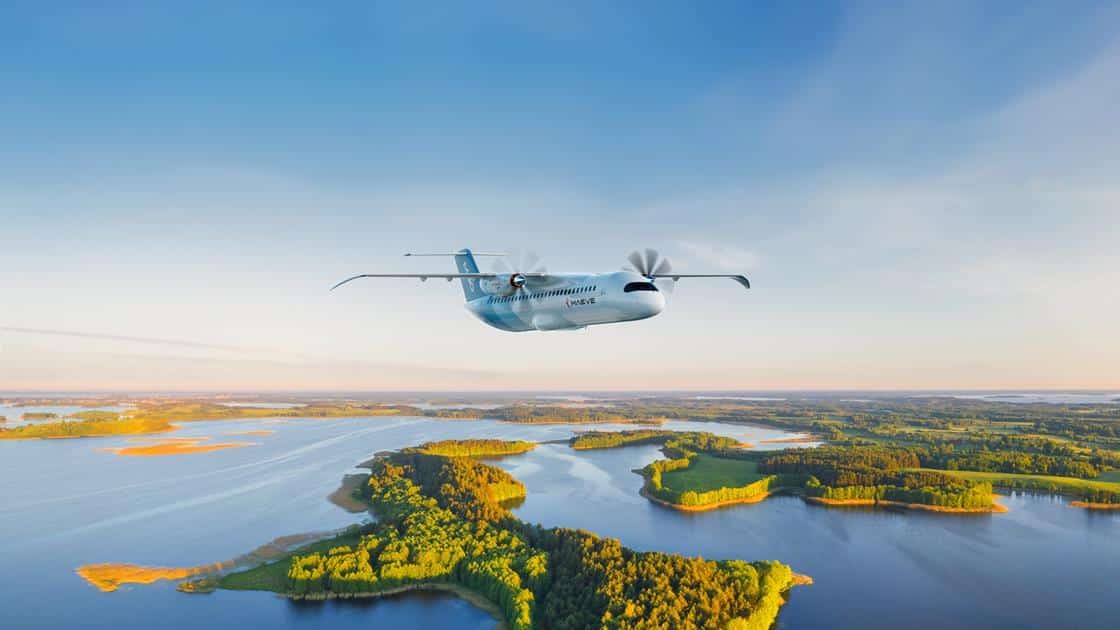US regional carrier SkyWest Airlines has taken an equity stake in Dutch hybrid-electric aircraft developer Maeve Aerospace, hinting at the airline’s vision for next-generation turboprop operations in the 2030s.
St George, Utah-based SkyWest said on 15 September that its investment secures launch customer rights for the start-up’s so-called Maeve Jet, an envisioned hybrid-electric regional aircraft that the company is marketing as the “first clean-sheet regional jet to be introduced to the market in over 20 years”.
The carrier says the agreement reinforces its “commitment to the advancement of modern, economic regional aviation solutions”, with chief executive Chip Childs adding that Maeve Aerospace is on the “leading edge” of lower-emissions regional aviation.
Financial terms of the agreement have not been disclosed by SkyWest and Maeve.
From the perspective of Maeve Aerospace, which holds offices in Germany and the Netherlands, the agreeement signals strong interest in its planned production aircraft from the operator of the largest regional fleet in the USA.
SkyWest flies more than 500 Embraer E-Jets and MHIRJ CRJ aircraft on behalf of Delta Air Lines, American Airlines and Alaska Airlines.
“This investment, made by the largest regional airline in the world, not only validates our vision but also establishes a partnership that supports the development of the Maeve Jet by providing important input from an operator to generate a real impact in the market,” says Martin Nuesseler, Maeve’s chief technology officer.
Earlier this year, MHIRJ Aviation Group signed on to help develop Maeve Aerospace’s M80 – a hybrid-electric 80-seater that the company has previously said could enter service by 2032.
And last year, Maeve and Pratt & Whitney Canada (P&WC) disclosed a partnership to design hybrid-electric propulsion technologies for the M80 aircraft.
Other efforts are underway to explore potential hybrid-electric turboprop designs.
Earlier this year, French airframer ATR said it was also working with PW&C to investigate a “mild hybrid” version of PW127XT engine for the proposed Evo upgrade to its aircraft. That programme is targeting a potential service entry of 2035 and seeking to reduce fuel burn by some 20% compared with current-generation turboprops.
And California-based Heart Aerospace is pursuing its hybrid-electric ES-30 30-seater.
German firm Deutsche Aircraft, meanwhile, is advancing a conventional-propulsion D328eco. That is not a clean-sheet design, but rather an evolution of the original Dornier 328 turboprop.


